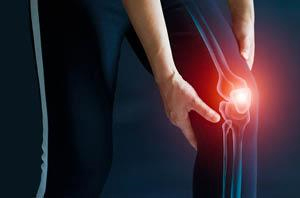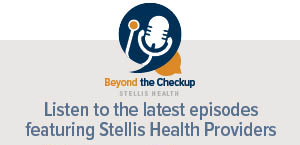No More Grin and Bear It
When It’s Time to See the Doctor About Pain
“How do you measure different levels of pain? In hertz.” There are an awful lot of jokes about pain, considering an estimated 50 million adults suffer from chronic pain and another 19.6 million have high-impact chronic pain. In this case, laughter is not the best medicine. People wait entirely too long to see the doctor about pain.
Pain is the body’s alert system. It’s the brain signaling to you with an uncomfortable sensation that something is amiss, and possibly a threat. Chronic pain is classified as pain lasting three to six months, maybe longer. Acute pain is sudden and severe, often the result of trauma or an accident. Acute pain can lead to chronic pain.
Pain is a uniquely personal experience. Listen to your gut; don’t second guess yourself. Waiting to address pain with doctors can negatively impact your sleep patterns, work abilities, sexual activities, mental health, social interactions, and day-to-day activeness.
Why We Wait
As humans, we have learned to second guess the messages our body and brain send to us. Trusting your gut instinct is imperative to curbing pain and illness. These are few reasons we choose to ignore pain symptoms:
- Habituated to pain; “just a part of life” mentality
- The belief that the pain is being successfully treated (or at least tolerated) with OTC medications
- Cost concerns
- The assumption that nothing will help
- Unfamiliar with pain management offerings
- Fear of doctors, treatments, and/or bad news
- Inconvenience
- Previous invalidation or past wrong diagnoses
- Feeling “paingry” for being on the pain merry-go-round: a multitude of unsuccessful appointments, tests, procedures, and medications with no positive result
Compelling Reasons to Address Pain
Time is of the essence when acknowledging pain. What you don’t know can hurt you and debilitate you further. Look to these reasons as to why you should address your pain in a timely fashion.
- There may be more options than you think
- It may be an indication of a more serious underlying condition
- Reclaiming control of your health, physicality, and life
- Better results with early intervention
- Quality of life is negatively impacted currently and in the long run
- The ability to heal diminishes with age
- You want to avoid invasive surgery
When It’s Time
There are no set rules or timeframes that advise you when to consult with physicians. But these ‘red flags’ are strong indicators that it is time to seek an appointment with your doctor.
- Pain persists (including coming and going) for several weeks, months, or years
- Pain is accompanied by a limited range of motion and/or a specific motion
- OTC medications aren’t helping; you’re taking more medications than recommended and/or mixing them with other drugs or alcohol
- Day-to-day activities, including work, social events, and hobbies, are a struggle
- Pain is interfering with sleep
- The pain changes: strange sensations, increased intensity, lack of sensation anywhere in the body, numbness in the hands or feet, significant pain at rest or at night, and new, unrelenting pain in the abdomen, chest, or head
- New symptoms accompanying pain: night sweats, weight loss, loss of muscle control with the arms, legs, bladder, or bowel, continuous depression, increased worry, frustration, or irritability
In preparation for an upcoming appointment, it is advised that patients keep a pain diary so they can accurately relay their daily experiences with pain to their provider. It gives healthcare providers a thorough idea of your levels of discomfort as well insight into any patterns. Click below for a printable pain tracker.
During your visit, after a detailed conversation regarding your concerns, symptoms, and habits, you can expect to discuss a variety of topics with your provider including:
- Methods of pain relief – both medications and non-pharmacological strategies – and the pros and cons of each of the options
- Realistic goals and expectations of therapy and treatment
- Fears or barriers that may affect pain management
- General health guidelines
- The importance of a support system for both physical and emotional assistance
Start your path towards pain relief today by scheduling an appointment at any of Stellis Health’s three locations.







